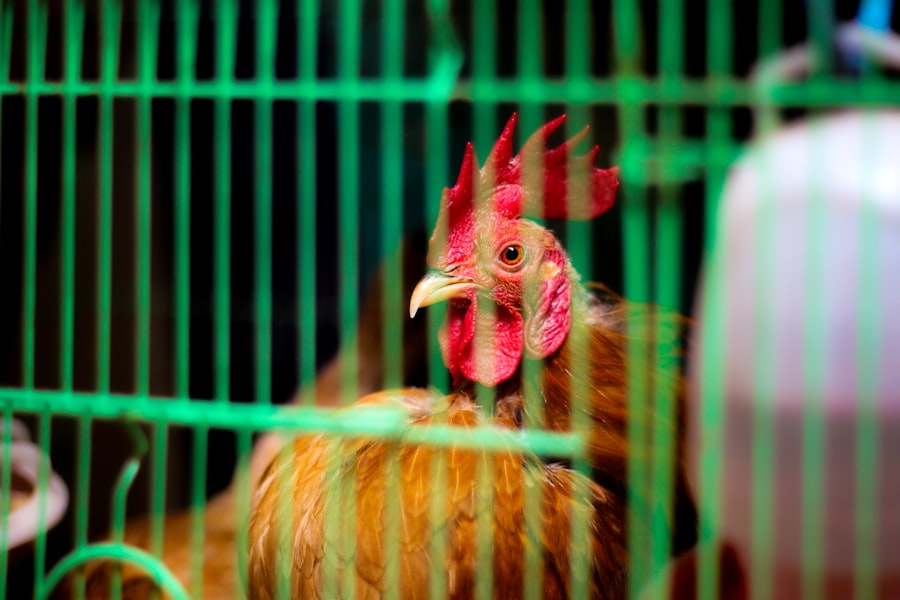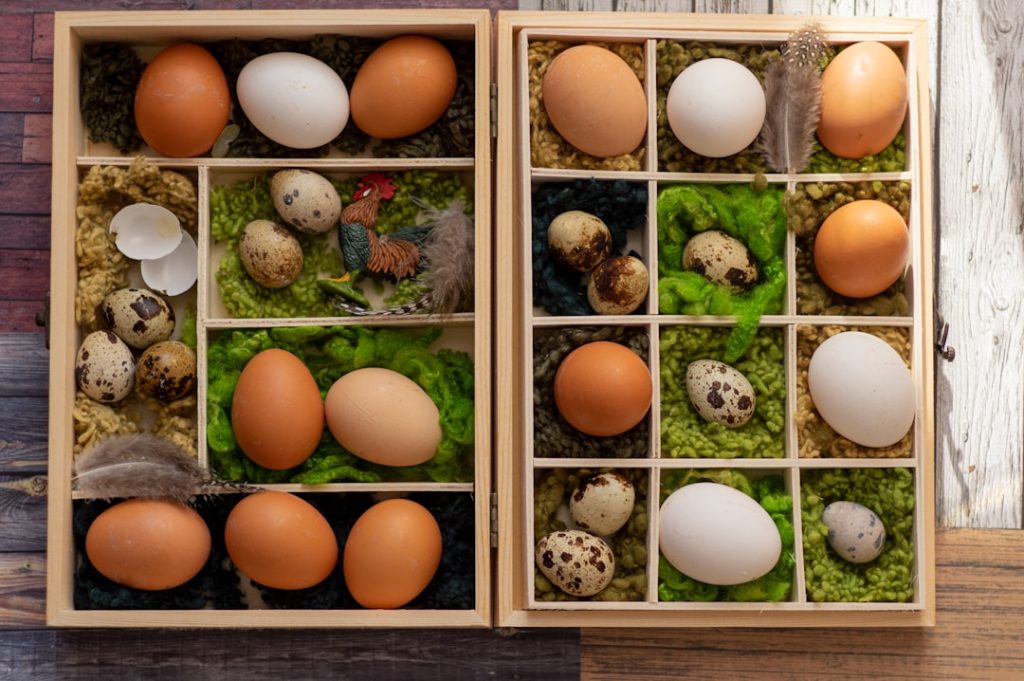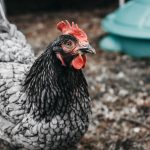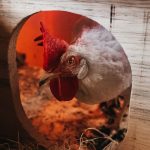Raccoons are intelligent and dexterous animals that pose a significant threat to backyard chicken coops. These nocturnal omnivores are adept at breaking into coops and preying on chickens, often causing substantial damage and loss. Their sharp claws and strong jaws enable them to easily access coops, where they can cause considerable harm to the flock.
Raccoons are known for their ability to open latches, pry open doors, and dig under fences to reach chickens. The agility and persistence of raccoons make them a challenging adversary for chicken owners. These animals are also carriers of various diseases, including rabies, which can endanger both chickens and humans.
Understanding the threat that raccoons pose to chickens is essential for implementing effective protective measures. Chicken owners must be aware of the potential dangers raccoons present and take proactive steps to secure their coops. This awareness allows for the implementation of necessary precautions to safeguard flocks from harm and minimize the risk of raccoon intrusions.
Table of Contents
- 1 Securing the chicken coop: Tips for keeping raccoons out
- 2 Deterrents and repellents: Natural ways to keep raccoons away from chickens
- 3 Nighttime precautions: Protecting chickens from raccoons after dark
- 4 Removing attractants: Preventing raccoons from being drawn to the coop
- 5 Monitoring and maintenance: Regular checks to ensure raccoons stay away
- 6 Dealing with persistent raccoon problems: What to do if raccoons continue to threaten the chickens
- 7 FAQs
- 7.1 What are some effective ways to keep raccoons away from chickens?
- 7.2 Why are raccoons a threat to chickens?
- 7.3 What are some signs that raccoons are targeting my chickens?
- 7.4 Are there any natural deterrents for keeping raccoons away from chickens?
- 7.5 What should I do if I suspect raccoons are targeting my chickens?
Key Takeaways
- Raccoons pose a threat to chickens as they are natural predators and can easily access chicken coops.
- Securing the chicken coop with strong locks, wire mesh, and secure fencing can help keep raccoons out.
- Natural deterrents such as predator urine, motion-activated lights, and noise machines can help keep raccoons away from chickens.
- Taking nighttime precautions such as locking chickens in a secure coop and installing motion-activated lights can protect them from raccoons.
- Removing attractants such as food scraps, fallen fruits, and garbage can help prevent raccoons from being drawn to the chicken coop.
Securing the chicken coop: Tips for keeping raccoons out
Building a Raccoon-Proof Coop
One of the most important steps in securing the coop is to ensure that it is built with sturdy materials and has no weak points that raccoons can exploit. This includes using heavy-duty wire mesh to cover windows and vents, as well as reinforcing doors and latches to prevent raccoons from gaining entry.
Maintenance and Inspection
Additionally, it’s important to regularly inspect the coop for any signs of wear and tear, and promptly repair any damage to prevent raccoons from finding a way in.
Deterrents and Prevention
Another effective way to secure the coop is to install motion-activated lights or alarms around the perimeter. Raccoons are nocturnal animals, so they are often deterred by sudden bright lights or loud noises. By installing these deterrents, chicken owners can make their coop less appealing to raccoons and reduce the risk of a potential attack. It’s also important to keep the area around the coop free of debris and overgrown vegetation, as these can provide hiding spots for raccoons. By maintaining a clear and open space around the coop, chicken owners can make it more difficult for raccoons to approach undetected.
Deterrents and repellents: Natural ways to keep raccoons away from chickens
In addition to securing the coop, there are natural deterrents and repellents that can help keep raccoons away from chickens. One effective method is to use strong-smelling substances, such as ammonia or predator urine, around the perimeter of the coop. Raccoons have a keen sense of smell, and these odors can deter them from approaching the coop.
Another natural deterrent is to plant strong-smelling herbs, such as mint or lavender, around the coop. These plants can help mask the scent of chickens and make the area less attractive to raccoons. Another natural way to keep raccoons away from chickens is to use motion-activated sprinklers or sound devices.
These can startle raccoons and discourage them from approaching the coop. Additionally, some chicken owners have had success with using natural predators, such as dogs or even larger birds of prey, to deter raccoons. By introducing these natural predators into the area, raccoons may be less likely to target the coop.
It’s important to note that while these natural deterrents can be effective, they may not provide foolproof protection against raccoons. Therefore, it’s important to use them in conjunction with other security measures to ensure the safety of the flock.
Nighttime precautions: Protecting chickens from raccoons after dark
Nighttime is when raccoons are most active, making it crucial for chicken owners to take extra precautions to protect their flock after dark. One important step is to ensure that all chickens are securely locked inside the coop at night. Raccoons are skilled at breaking into coops, so it’s essential to have strong doors and latches that can withstand their attempts to gain entry.
Additionally, it’s important to regularly check for any signs of damage or wear on the coop doors and promptly repair any weak points that could be exploited by raccoons. Another nighttime precaution is to use automatic door closers on the coop doors. These devices can be set to close the doors at a specific time each evening, ensuring that the chickens are safely secured inside before raccoons become active.
It’s also important to avoid leaving any food or water outside of the coop overnight, as this can attract raccoons and increase the risk of an attack. By taking these nighttime precautions, chicken owners can reduce the likelihood of raccoon attacks and help keep their flock safe while they sleep.
Removing attractants: Preventing raccoons from being drawn to the coop
Raccoons are attracted to chicken coops by the promise of an easy meal, so it’s important for chicken owners to remove any potential attractants that could draw them in. One common attractant is food scraps or spilled feed around the coop. It’s important to regularly clean up any food debris and store feed in secure containers to prevent raccoons from being lured in by the scent of food.
Additionally, it’s important to secure any garbage bins or compost piles near the coop, as these can also attract raccoons looking for an easy meal. Another potential attractant for raccoons is water sources near the coop. Raccoons are drawn to water, so it’s important to ensure that any water sources, such as ponds or birdbaths, are not located too close to the coop.
By removing these attractants, chicken owners can make their coop less appealing to raccoons and reduce the risk of an attack. It’s also important to be mindful of any other potential attractants in the area, such as pet food or fruit trees, and take steps to minimize their impact on the coop’s security.
Monitoring and maintenance: Regular checks to ensure raccoons stay away

Conducting Regular Checks
Regular checks of the perimeter are essential for detecting any signs of raccoon activity, such as tracks or droppings. By staying vigilant and monitoring for potential signs of raccoon presence, chicken owners can take proactive measures to prevent an attack before it occurs.
Inspecting the Coop
Regular inspections of the coop are necessary to identify any signs of wear and tear, such as damaged wire mesh or weak spots in the structure. This helps to prevent raccoons from exploiting any vulnerabilities and gaining access to the flock.
Staying Informed
Staying informed about local raccoon activity is vital for taking proactive measures to protect the flock. This includes staying in touch with neighbors or local wildlife authorities to share information about recent raccoon sightings or attacks. By doing so, chicken owners can reduce the risk of an attack and ensure the safety and security of their flock.
Dealing with persistent raccoon problems: What to do if raccoons continue to threaten the chickens
Despite taking all necessary precautions, some chicken owners may still find themselves dealing with persistent raccoon problems. In these cases, it’s important to take additional steps to protect the flock and deter raccoons from targeting the coop. One option is to consider installing an electric fence around the perimeter of the coop.
Electric fences can provide an effective deterrent against raccoons and other predators, helping to keep them at bay and protect the flock from harm. Another option for dealing with persistent raccoon problems is to consider trapping and relocating the animals. This should only be done by experienced professionals who are familiar with local regulations regarding wildlife management.
Trapping and relocating raccoons can be a complex process, so it’s important to seek guidance from wildlife authorities or pest control experts before attempting this method. Additionally, it’s important for chicken owners to continue implementing other security measures alongside trapping and relocating efforts to ensure that their flock remains safe from potential attacks. In some cases, it may be necessary to seek assistance from wildlife authorities or pest control experts if persistent raccoon problems continue to threaten the chickens.
These professionals can provide guidance on effective methods for deterring raccoons and protecting the flock from harm. By seeking expert assistance, chicken owners can gain valuable insights into how best to address persistent raccoon problems and ensure the safety of their flock. Dealing with persistent raccoon problems requires a proactive approach and a willingness to seek professional guidance when necessary.
In conclusion, protecting chickens from raccoons requires a multi-faceted approach that includes securing the coop, using natural deterrents, taking nighttime precautions, removing attractants, monitoring regularly, and dealing with persistent problems effectively. By understanding the threat that raccoons pose and taking proactive measures to protect their flock, chicken owners can reduce the risk of attacks and ensure that their chickens remain safe and secure. While dealing with persistent raccoon problems may require additional effort and professional assistance, it’s essential for ensuring the long-term safety of the flock.
With careful planning and proactive measures in place, chicken owners can successfully keep raccoons away from their chickens and provide them with a safe and secure environment in which to thrive.
If you’re looking for ways to keep raccoons away from your chickens, you might want to check out this article on Poultry Wizard. It offers tips and strategies for securing your chicken coop and protecting your flock from predators like raccoons. By implementing some of the suggestions in the article, you can create a safer environment for your chickens and reduce the risk of raccoon attacks.
FAQs
What are some effective ways to keep raccoons away from chickens?
Some effective ways to keep raccoons away from chickens include securing the chicken coop with strong locks, using motion-activated lights or sprinklers, and installing an electric fence around the coop.
Why are raccoons a threat to chickens?
Raccoons are a threat to chickens because they are skilled predators and can easily break into chicken coops to prey on the birds. They are also known to carry diseases that can be harmful to chickens.
What are some signs that raccoons are targeting my chickens?
Some signs that raccoons are targeting your chickens include missing or injured birds, damage to the chicken coop or fencing, and the presence of raccoon tracks or droppings near the coop.
Are there any natural deterrents for keeping raccoons away from chickens?
Some natural deterrents for keeping raccoons away from chickens include using strong-smelling substances like ammonia or predator urine around the coop, and planting thorny bushes or plants that raccoons dislike near the coop.
What should I do if I suspect raccoons are targeting my chickens?
If you suspect raccoons are targeting your chickens, it is important to take immediate action to secure the chicken coop and implement deterrents. You may also consider contacting a professional wildlife removal service for assistance.
Meet Walter, the feathered-friend fanatic of Florida! Nestled in the sunshine state, Walter struts through life with his feathered companions, clucking his way to happiness. With a coop that’s fancier than a five-star hotel, he’s the Don Juan of the chicken world. When he’s not teaching his hens to do the cha-cha, you’ll find him in a heated debate with his prized rooster, Sir Clucks-a-Lot. Walter’s poultry passion is no yolk; he’s the sunny-side-up guy you never knew you needed in your flock of friends!







